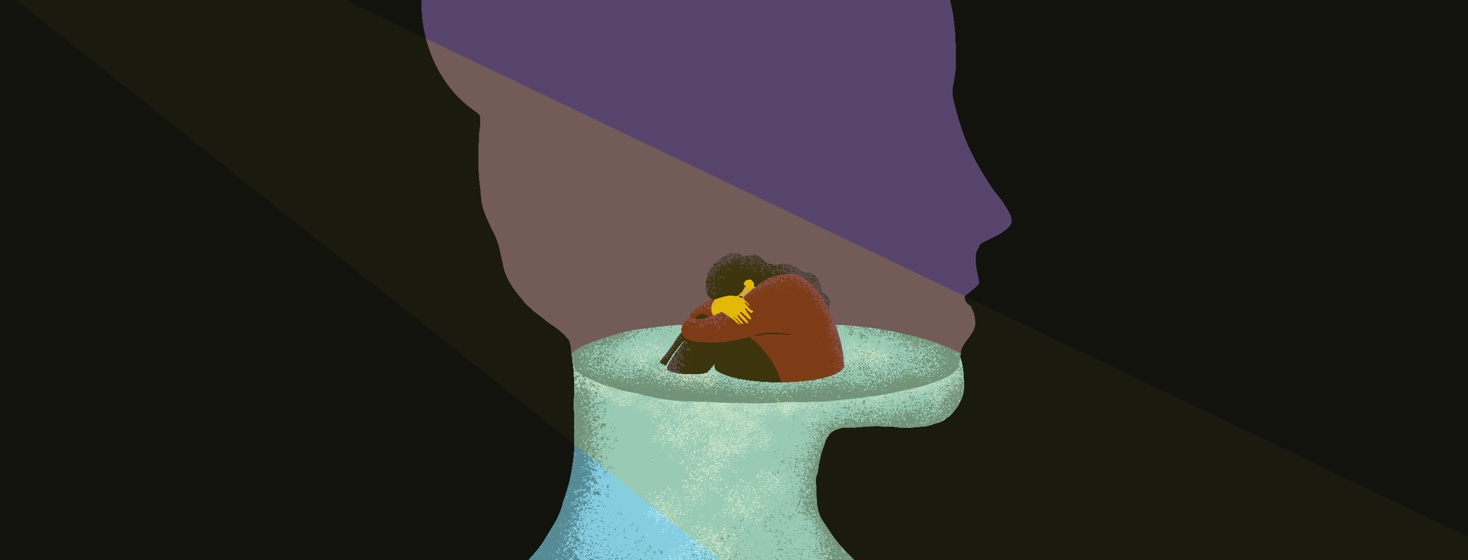Anxiety: My Depression's Loyal Companion
When depression strikes and rears its ugly head, anxiety is not far behind. At least that has been my experience. Depression and anxiety go hand in hand like peanut butter and jelly or song and dance. You get what I mean.
Having anxiety as a a child
Although I was rather shy and retiring growing up (not so much now), I recall being in the nurse's office as a 4th grader and the nurse telling my mother that I was a rather anxious, nervous child.
It was so long ago that I have forgotten the context, but I do remember the comment.
As time went on, I think I was fairly even-tempered and mellow. Sure, I had bouts of frenzy when working for a newspaper in my 20s. Deadlines could be stressful. Plus, it was a toxic work environment I had to pull myself through. But life was often smooth.
Caregiving elevated my anxiety
In later years, I became a caregiver for my mother. That is when anxiety became my constant companion. I found myself checking and double checking to see if something was wrong, if her health was taking a turn, if she had taken her medicines, etc.
I spent a lot of time in hospital waiting rooms and at her bedside, worrying when unfamiliar doctors would enter the room and not have the correct background information to provide adequate care. When she was released, I would worry if it was too soon or if I could handle and adjust to the latest switch of routines, pills, or doses.
Fight or flight mode
Sometimes, I would just look at her and ask, "Is something going on?" Turns out, when I said it – and I didn't a lot, so as not to worry her – it was usually during a heart failure episode or some other medical problem.
Have you heard of fight or flight? That was the mode I was permanently in. Now, a dozen years later, that is still the case.
Plus chronic illness and major depressive disorder
Living with blood cancer, specifically chronic myeloid leukemia for 10 years, has turned me into the anxious, nervous individual the nurse spoke about.
I recently saw a new physician who is testing me for autoimmune disorders. When I was leaving, she spoke about conserving my energy so I would not be so exhausted every day. She also said that my body is flittering from crisis to crisis – it is in fight or flight response – and does not have a chance to "wan," enough before something else comes up. Hence chronic inflammation and fatigue.
Panic attacks
During a particular bad spell for me early in 2024, I started experiencing panic attacks again.
I would ruminate on emotional and physical ailments – unable to bounce back regularly from dark days with depression capped off with thoughts that there is no way things could get better.
The anxiety that dovetails with major depressive disorder can be a harrowing experience. Like with depression, I can recognize what is happening and talk myself down from it before it escalates now.
Deep breathing and rest
The feeling of panic manifested itself with a tightening in my chest and jaw and my breathing becoming irregular. This last time it happened, I began doing some deep breathing – in and out – to calm myself down.
I reassured myself that it was not a heart attack or anything like that and I was just panicking and feeling overwhelmed. Which I was. I also took a little time to rest that day.
This or That
When practicing mindfulness, do you prefer to be ___.
Recognizing symptoms of anxiety and major depression
I am not advocating that people ignore their symptoms or play the hero in every situation. On the contrary, it has taken me years to figure out that anxiety and major depressive disorder cohabitate and to recognize the warning signs and symptoms of both.
Then, I use the strategies I have learned to self-soothe. But sometimes we may need outside intervention from a professional. Remember: There is no shame in seeking help. It shows that you are brave and strong, not weak!
